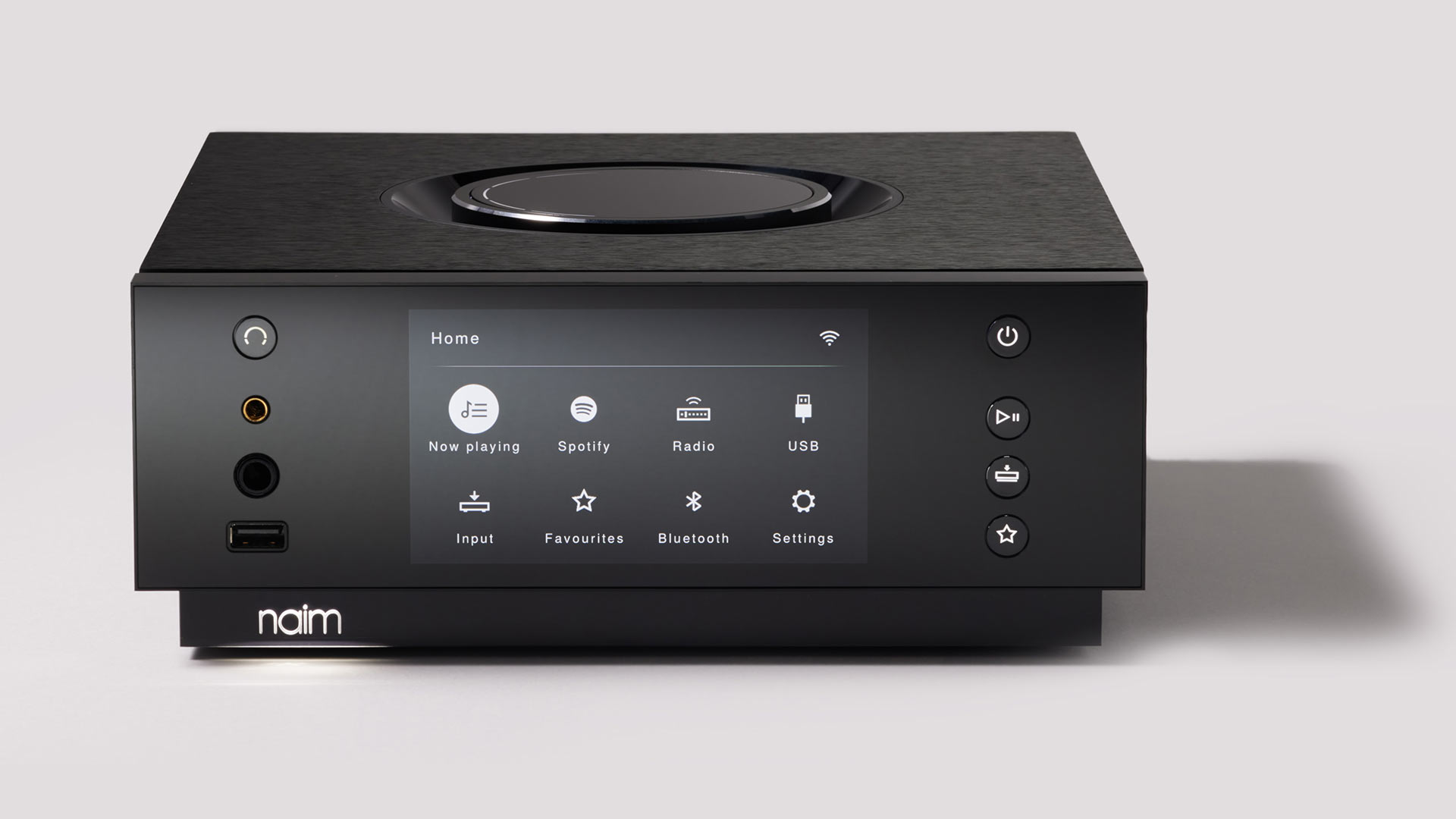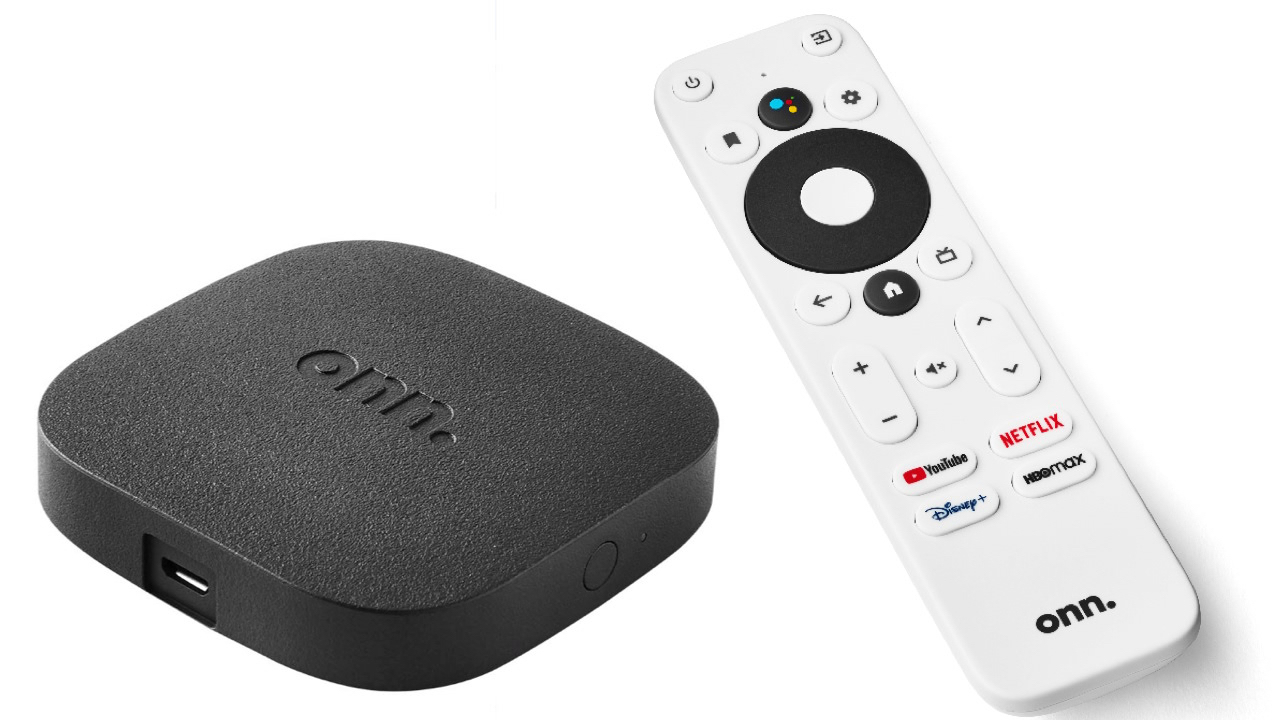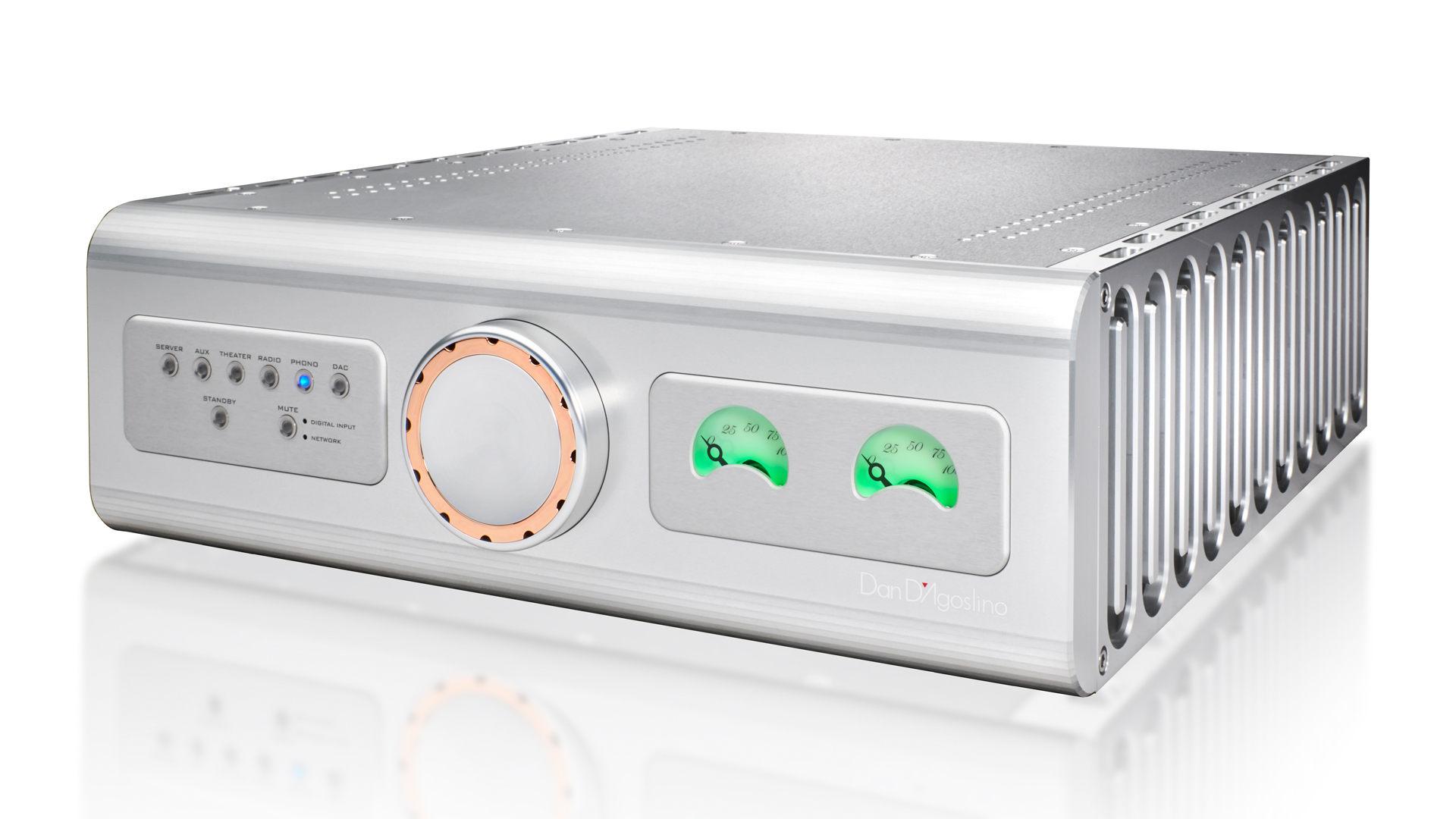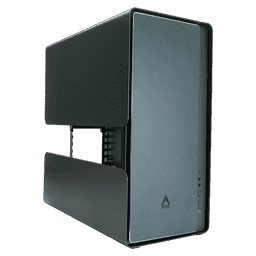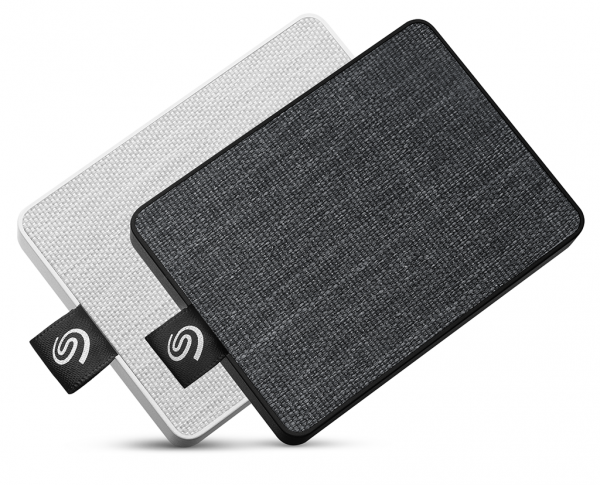Our Verdict
The new Atom’s headline ability is headphone playback, but don’t underestimate its value as a preamplifier. It’s a classy and versatile addition to Naim’s Uniti range.
For
- Top-notch streaming
- Great headphone stage
- Also a great smart preamp
Against
- No HDMI ARC input
Sound+Image mag review
This review originally appeared in Sound+Image magazine, one of What Hi-Fi?’s Australian sister publications. Click here for more information on Sound+Image, including digital editions and details on how you can subscribe.
UK-based Naim Audio became first renowned for its amplification, proving the importance of power quality from the early 1970s. Three decades later Naim was also quick to recognise the future of file-based and streaming music, and today enjoys great success with its Mu-so wireless speakers, while the Uniti range of all-in-one streaming systems deliver simple but definitely hi-fi ‘just-add-speakers’ solutions.
In a way the Uniti players brought together everything Naim has learned – the wireless, multiroom and control elements of the Mu-sos, with the solid hi-fi amplification developed over decades, including more recent trickle-down tech from the developmental fillip of investment made in the company’s no-holds-barred Statement amplifier project.
Now here comes the Uniti Atom Headphone Edition (£2399/$3290/AU$4299), which takes the smallest of the existing Uniti all-in-ones and does something rather unexpected for Naim – it throws out the part on which the company built its reputation, the amplification.
- 10 of the best British amplifiers of all time
Features
Well, that’s not entirely true. There are no amplifiers for loudspeakers, as provided on the other Uniti units (excepting only the Uniti Core, which adds networked hard-drive storage to the range).
But as the ‘HE’ of the new name suggests, it caters instead to headphones. On the front there are headphone outputs for jacks of full-size quarter-inch (6.5mm in new money) and 4.4mm Penteconn balanced connections, while round the back there’s a second balanced connection on 4-pin XLR.
We’re told that for this product Naim has used an all-new amp implementation designed especially so it delivers the best headphone amplifier experience, including a new transformer design to provide power tailored to the needs of the headphone amplification.
But this is not only a headphone amp. It’s also a preamplifier, and Naim has optimised its preamplifier performance also, “including elements originally used in our flagship Statement Amplifier” it says.
As a preamplifier it offers one analogue input pair on RCA sockets, and then digital inputs: two optical and one coaxial, plus USB-A slots both front and rear. There’s also Bluetooth available, which includes the aptX codec.
What doesn’t it have? It loses from the original Atom the HDMI ARC connection which was handy to play audio from your TV, and there’s still no USB-B connection to play direct from computer.
But its outputs are expanded, its variable preamplifier output available on both unbalanced RCA and balanced XLR outputs to feed your downstream amplification. This could play straight to power amps, since there is full volume control in the Atom HE – either from the remote, from its app, or from the heavenly Naim knob which sits on top, the only disadvantage of this positioning being that it is hidden when the unit goes on a good rack shelf, though its minimal height of 9cm means you should still be able to squeeze your hand in there for a knob spin when the urge presents itself.
Streaming
And in addition to physical inputs, this Naim has all the streaming prowess of other Uniti members, and that’s to say as complete a set of protocols as you’ll find anywhere – so many, indeed, that when the range originally launched, it was significantly delayed by the paper trail for all the licensing involved.
So this includes being easily addressed from any Spotify app, free or paid, or using Apple’s AirPlay 2 to stream the output of a Mac or any app on an iOS app, and Chromecast too, for point-to-point streaming from Android devices. Those with music libraries on a PC can use its UPnP ‘server’ function. It’s also Roon Ready, and although the Roon-direct licensing was still going through when it arrived for review, it was nevertheless available in Roon via its Chromecast and AirPlay abilities.
Then there are the services available within the Naim app itself. These include internet radio and podcasts, Tidal, and Qobuz (the latter newly available to Australia). You may note these are services which offer higher-quality subscriptions; Naim emphasises this quality also in its internet radio app, with a section devoted to higher-rate streams than the often grungy desk-compressed pop stations.
And one last batch of capabilities – the Atom HE is multiroom-capable with other Naim equipment including the Mu-so wireless speakers, so you can have music playing in unison (and Uniti) throughout your home. Chromecast and AirPlay 2 offer other paths to multiroom and multi-device playback.
- Best music streamers 2021
Setting up
Having previously reviewed the standard Uniti Atom, we found set-up here to be a breeze. You have to pair the remote control by holding it to the full-colour five-inch front-panel panel display while you push ‘Home’ for three seconds. Our Naim app, already installed on an iPad Pro, needed a reinstall before it saw the Atom HE on the network and delivered it a firmware update, losing contact until the update was complete.
Beyond that, we had absolutely zero operational issues, and indeed throughout our testing we were able to generate no criticisms at all – not one – because Naim has honed its highly versatile and potentially complex operation to something near perfection.
Image 1 of 2
Image 2 of 2
The Naim app presents all its streaming services on one screen, the inputs on a scrolling second screen; if that doesn’t appeal you can use the settings to reorder the inputs to your preference, banishing unused ones to the second screen.
We had connected a Thorens turntable via a phono stage into the analogue input. We connected our computer to an optical input, using a DAC between them as a USB-to-SPDIF converter.
To kick off, we ran the Atom HE’s unbalanced pre-outputs to our resident power amps, always a slightly nervous connection to make when the preamp is digitally controlled and might flick the output to max accidentally. (Once we had Roon connected, we specified a safety level beyond which the volume slider then can’t go.)
We addressed it first from Tidal on the Naim app, then from the Tidal app itself, then from Roon.
Indeed during the Atom’s visit it may have be physically located in one room, but it seemed omnipresent. Wherever we accessed music – on the music room computer, on our Chromebook, the iPhone, a tablet – there was the Naim Atom as a playback device waving at us as if saying ‘Play to me! Play to me!’ There are so many ways to play that surely any current preferred path to playback will fit right in.
Listening
We can fully believe Naim’s claim that the preamp of the Atom HE is actually superior to those of the current Uniti range. Even in our initial set-up without the benefit of the balanced connections, all the cues from our favourite tunes poured from power amp and speaker references, dynamically delivered, cleanly resolving the good and the bad.
The effect on Alex the Astronaut’s main vocal for Split the Sky can sound curiously excessive on systems lacking resolution, degenerating into a mush. Here it could be discerned separately, part delay, part reverb. More to the point, the music and the emotion were entirely unchecked. The quite awful subject matter of her remarkable I Like To Dance is chilling; her Triple J cover of Mr Blue Sky – The Go-Betweens’ Lindy Morrison on drums – is sheer joy.
The Tidal stream through the Atom HE easily outperformed Spotify’s relatively softened sound. Naim’s Uniti platform does not support the MQA encoding which Tidal uses to ‘unfold’ its high-res Masters to their high definition – Naim could change this by firmware update, it has said, but is being led by demand.
Whatever you might think of MQA, it may be that uncompressed FLAC high-res streaming as offered by Qobuz and Deezer represents a purer future – after all, with today’s bandwidths defined by streaming 4K video, what need for data compression of high-res music any more?
So with Qobuz newly launched in Australia, we took the opportunity to connect our Roon to Qobuz, and our Roon to the Uniti. Roon’s excellent quality check pop-up box reminded us that Roon via Chromecast dropping the high-res to 48kHz, so we switched to Qobuz direct inside the Naim app. And what a joy that was. Fleetwood Mac’s Go Your Own Way was almost alarmingly crisp; details on Toto’s Africa (the left-channel chuckle on the intro) astoundingly apparent, especially as our usual playback preference for this slice of soft rock is the vinyl 45.
- Best music streaming services
On Kate Bush’s Running Up That Hill, the continuous rolling drums’n’bass were entirely segregated from the other parts, and the emotional lift of multitracked Kates as we reached the first ‘Come on baby, come on darlin’ was thrilling at an almost tactile level. We began regretting our agreement to return the Atom HE to distributor BusiSoft AV within an unusually brief two weeks; we were barely getting started and we were missing it already.
Headphone playback
Naim Uniti Atom Headphone Edition specs
Inputs: 1 x analogue RCA, 2 x optical digital, 1 x coaxial digital, 2x USB-A
Streaming: Apple AirPlay 2, Chromecast, UPnPT, Spotify Connect, TIDAL, Qobuz, Roon Ready, Bluetooth, Internet radio
Headphones outputs: 6.35mm, 4.4mm Pentaconn, 4 pin XLR
Audio outputs: preamp unbalanced (RCA); preamp balanced (XLR)
Also visiting from Naim’s Australian distributor were the Final Audio D8000 Pro headphones, themselves a mere AU$4999 (£3995, US$4299) with their silver-coated cables trailing away to the Atom HE’s full-size headphone jack like weighty twisted tinsel.
The Naim had not the slightest trouble driving these esoteric 60-ohm planar magnetic headphones to their maximum ability, whether delivering a tight and punchy kick drum under the guitar and synthscape of The Triffids’ Wide Open Road, or highlighting the curiously lo-fi elements opening Gotye’s Somebody That I Used To Know.
The Naim and Finals delivered a mind-meltingly zingy portrayal of The Go-Betweens’ Streets of your Town, currently resurrected for advertising purposes by Ampol but here crisply separated to the point where our attention was constantly darting around the soundstage to small sonic elements like the cunning combination of panned rhythm guitars, the tight block hits in the left, each element easily individually selectable by the mind’s ear, yet held together in a finely musical whole.
We also ran more affordable headphone references – open AKGs, closed Sennheisers – and there wasn’t a pair which didn’t display their full abilities or receive more than enough power on tap from the Atom HE – enough, indeed, to achieve quite worrying levels without any hint of congestion or distortion.
The relevant figures are 1.5 watt-per-channel output into 16 ohms (from all headphone outputs), and output impedance of 4.7 ohms. The headphone amp remains in pure Class-A except for lower impedance headphones pushed to the extremes of volume, when a Class-AB circuit is “seamlessly” invoked.
If you like it loud (bearing in mind the dangers of so listening), the Atom HE will at least ensure you get your music with a minimum of damaging distortion.
After a head-pumping serve of Wolfmother’s The Joker and the Thief we wondered if we should take a rest, but Qobuz continued serving such delights that we didn’t, instead diverting to some high-res classical. This confirmed the dynamic reserve of the headphone output and a remarkable ability to stay tonally accurate across different impedance headphones. All this was from the standard unbalanced quarter-inch headphone socket; the balanced outputs could potentially lift the Atom HE’s game still higher.
- Best headphones 2021
Having an assortment of active stereo speakers in residence for our group test this issue, it occurred to us that the Atom HE’s abilities as a preamp perfectly complemented just such devices. The ELAC Navis, for example, has balanced XLR inputs, to which we connected the Atom HE’s balanced outputs.
The result was wildly successful – a brilliant pair of speakers provided with a perfectly-pitched preamp output backed by physical inputs, streams galore, an app, a physical remote control and Naim’s big knob. Adding good active speakers to the Atom HE makes for a wonderfully compact yet versatile system, boosted by its particular powers to make your headphones sing when privacy is required.
Verdict
The Atom HE is an excellent addition to the Naim Uniti range – something genuinely different in offering a streaming preamplifier with a top-quality headphone amplifier. Use it alone with headphones, with power amps, or with active speakers, and you have a system just as versatile in its streaming abilities as the Mu-so, more versatile in its connections, and far higher in its hi-fi quality. And it comes with the best knob in hi-fi. It’s a big thumbs up from us.
